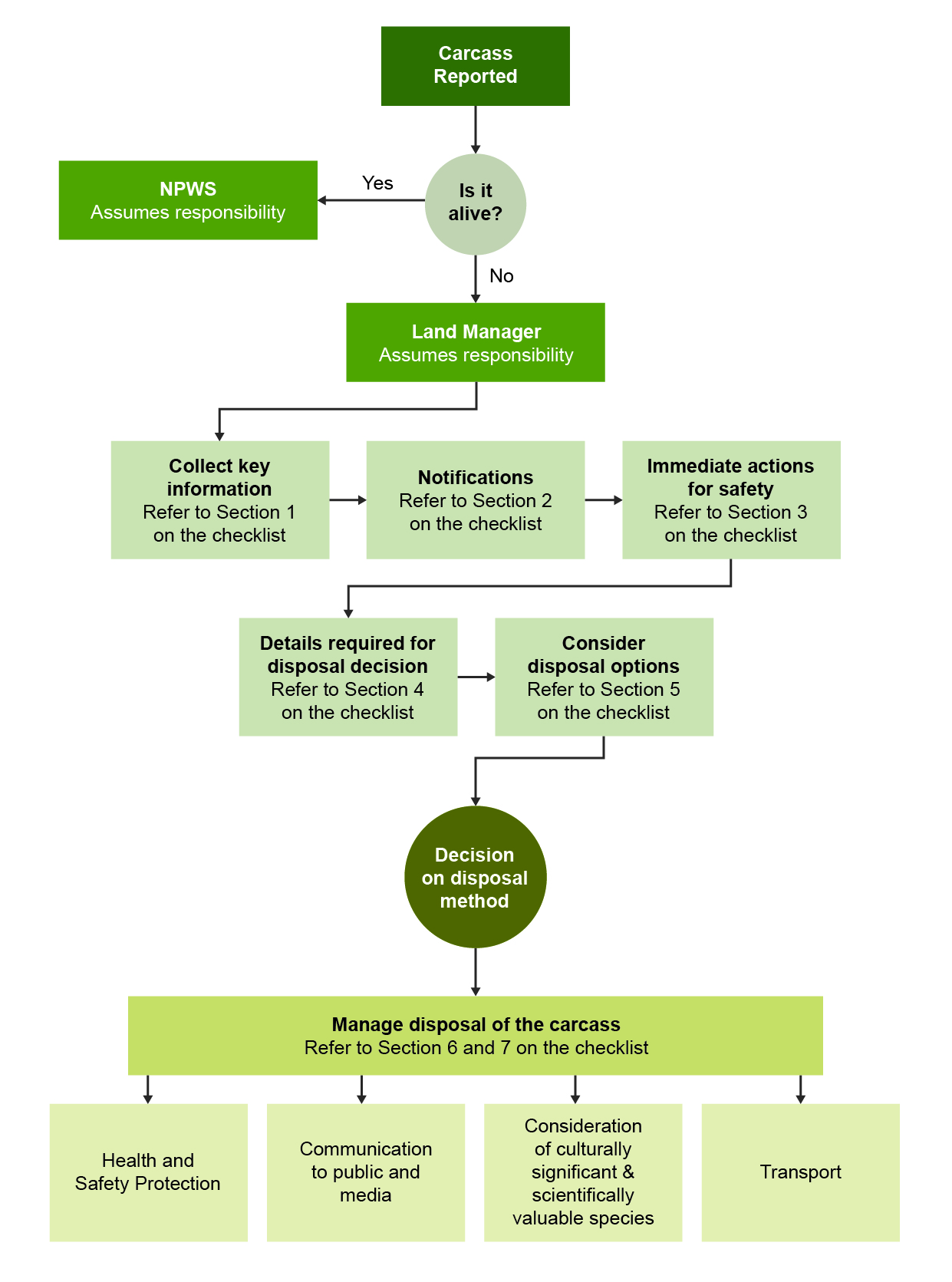The National Parks and Wildlife Service (NPWS) protects marine mammals in New South Wales.
From time to time, whale carcasses may wash ashore as part of their natural life cycle. As a central advisory service and subject matter experts, the National Parks and Wildlife Service will provide support and advice to other land managers when they need to deal with deceased whales on their land.
Land managers should call us on 13000 PARKS (1300 072 757) for advice on managing a deceased whale.
Land managers responsible for deceased whales
Land managers are responsible for managing deceased whales on the land they manage. In New South Wales, local councils, the National Parks and Wildlife Service, Crown Lands and the Department of Primary Industries and Regional Development (Fisheries) generally manage this land.
Practical guidance to help land managers and the community
We have compiled a flowchart and checklists that may be useful for land managers coordinating the disposal of whale carcasses on their lands.
Pre-season preparation
Pre-season checklist for land mangers managing whale carcass disposal
We have developed this checklist to assist land managers with preparation for whale carcass disposal.
| Check | Action | Purpose |
|---|---|---|
| ☑ | Contact Local Aboriginal Land Councils |
|
| ☑ | Discuss disposal capacity with local landfills |
|
| ☑ | Contact Environment Protection Authority (EPA) |
|
| ☑ | Contact Roads and Maritime Services (RMS) |
|
| ☑ | Identify and get equipment needs |
|
| ☑ | Identify local heavy plant contractors |
|
Flow chart for managing whale carcass disposal

Chart showing how whale carcass disposal is managed depending on the situation.
Checklist for land managers
This checklist assists land managers disposing whale carcasses by providing disposal options and key considerations such as notification procedures, health and safety and protection of natural and cultural heritage values.
The checklist does not provide complete instructions for carcass disposal or a detailed analysis of all risks associated with carcass disposal. It is the land manager’s responsibility to safely manage carcass disposal and NPWS takes no responsibility for decisions made by the land manager in reference to this list.
Download the Checklist for land managers disposing of whale carcasses (DOCX 47KB).